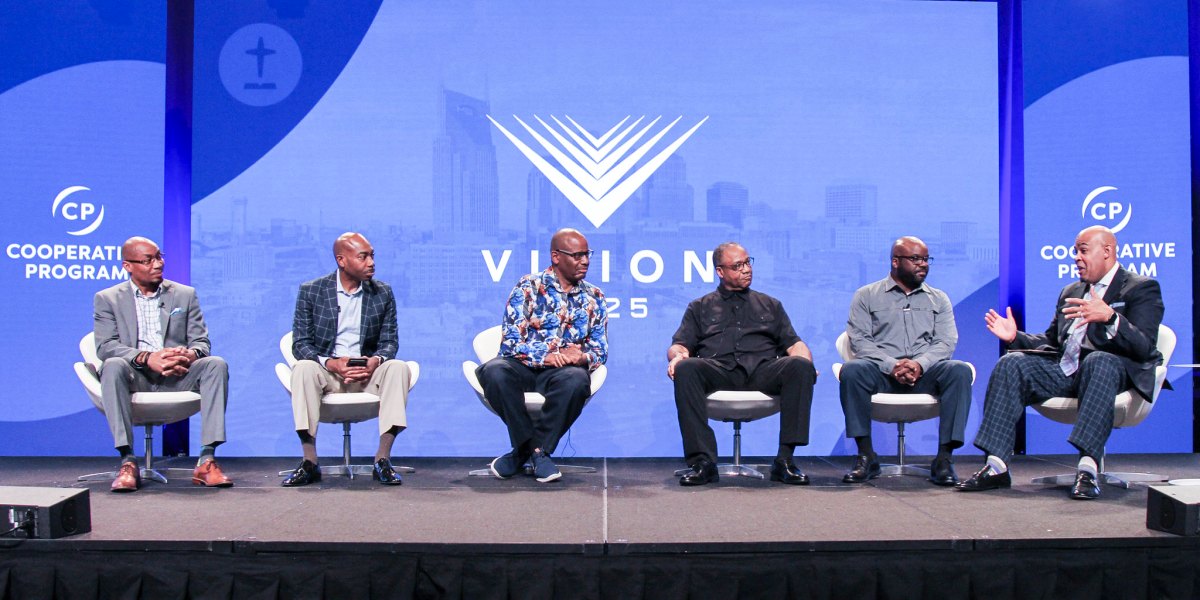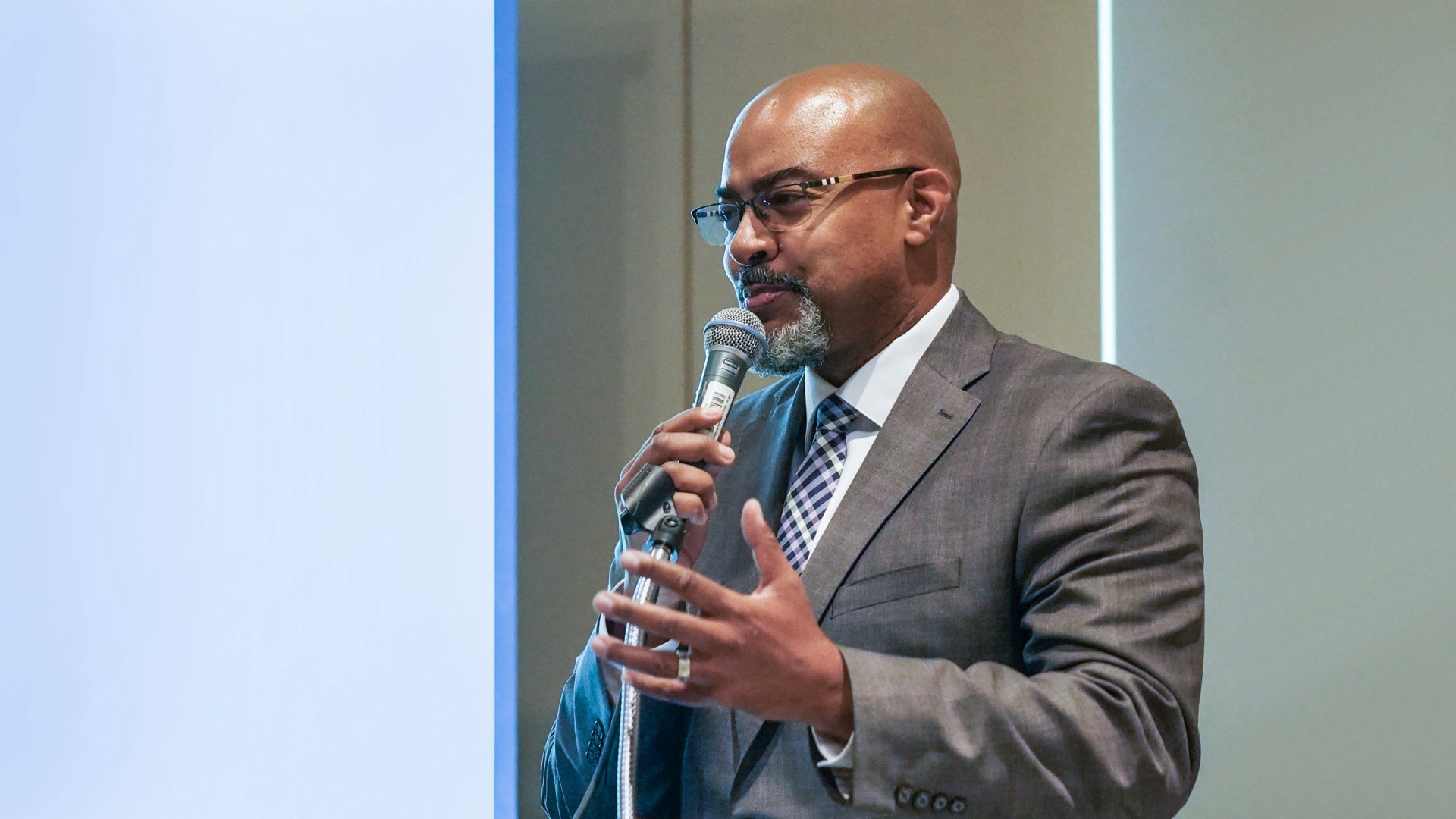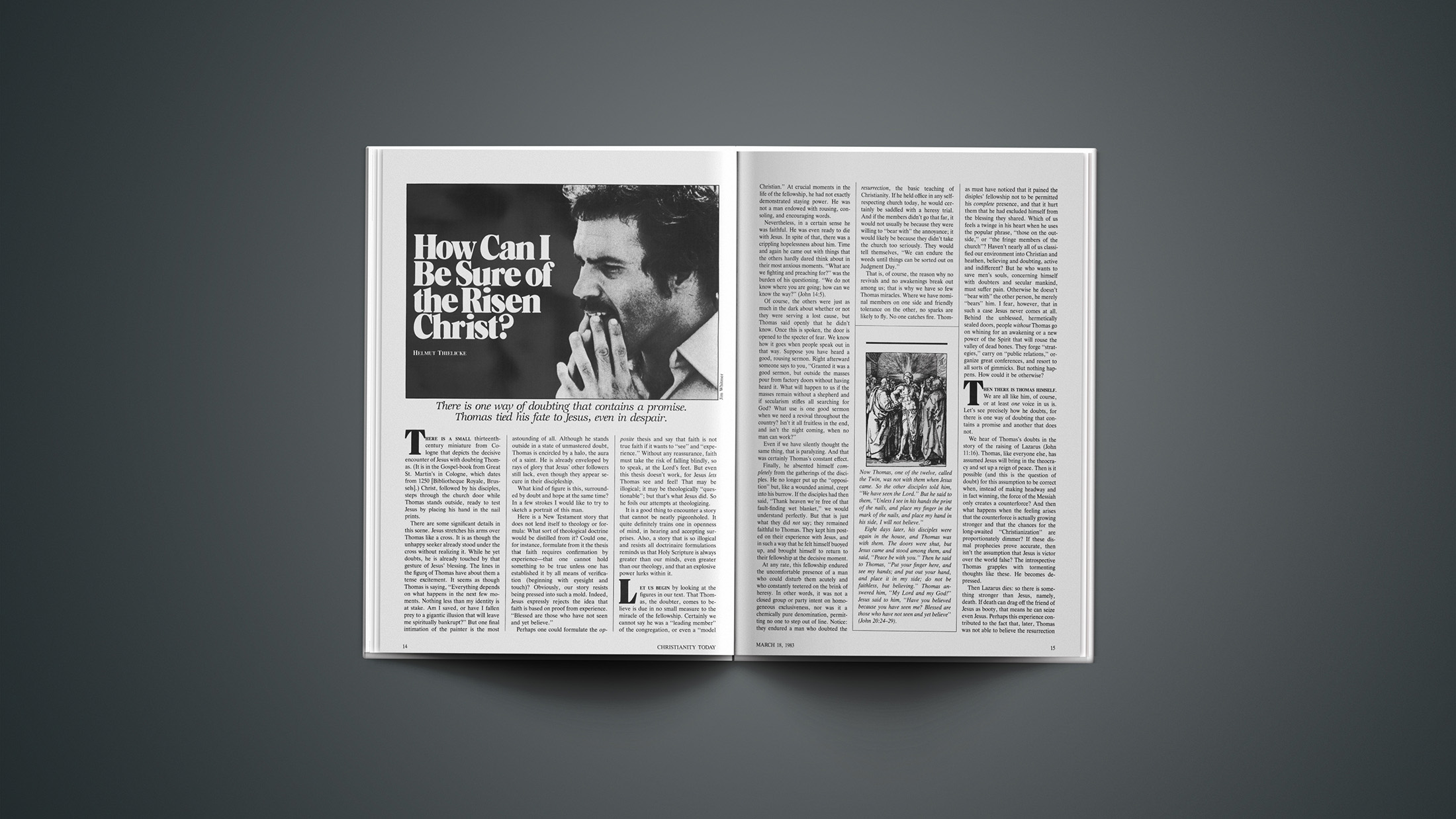When pastor Frank I. Williams thinks about diversity in the majority-white Southern Baptist Convention (SBC), he sees signs of encouragement and hope.
Over his ministry career, the New York preacher has watched voices of Black leaders and other leaders of color become more prominent in the denomination. As the new president of the National African American Fellowship of the SBC, Williams is excited about the momentum around young, diverse pastors in the SBC, particularly as a new generation of church planters.
His optimism around these pastors is justified. At this month’s SBC annual meeting in Nashville, SBC Executive Committee president Ronnie Floyd celebrated how majority-Black congregations in the denomination have nearly quadrupled since 1990. In all, by 2018, 22.3 percent of its churches were majority-non-Anglo, he reported.
For more than decade, the nation’s largest Protestant denomination has grappled with declines in membership. Yet during that time, Asian, Hispanic, and African American tallies continued to grow—adding more Black members and majority-Black churches than any other group.
But the 2021 annual meeting, the largest Southern Baptist gathering in 25 years, seemed to reflect a different story about its diversity.
For one thing, though the SBC does not track the race of attendees, the room of nearly 16,000 messengers was overwhelmingly white. And when race did come up for discussion, it was brought up mostly by white leaders, not in the context of diversity fueling growth within the denomination but in the ongoing debate around critical race theory (CRT).
Over the two days of business in Nashville, concerns over critical race theory were mentioned repeatedly in motions from the floor, discussions of denominational resolutions, questions posed to seminary leaders, and remarks from outgoing SBC president J. D. Greear.
Some claim that Southern Baptist efforts to address racism and promote diversity represent a capitulation of biblical principles. Others say such accusations misrepresent the SBC’s approach—which entity leaders emphasize puts the gospel above any secular theory—and hurt relationships with Black pastors.
Suspicions around critical race theory in the SBC have been swirling for the past two years, promoted by pastors and outlets affiliated with groups like the Conservative Baptist Network and Founders Ministries. The topic became a central issue dividing alliances around presidential candidates and a priority for a significant minority of messengers in attendance.
After the last annual meeting in 2019, “groups started critiquing CRT as an ultimate evil, but most don’t understand CRT,” said George Yancey, a sociologist at Baylor University.
Any disagreement over approaches to racism, such as interpretations of Black Lives Matter or discussions of white privilege, has been conflated with critical race theory in the minds of its detractors, said Yancey, so much so that the theory has become broadly “symbolic of the things they don’t like,” even if those elements are not central to the theory itself. Even experts disagree on the definition of critical race theory, but it’s a scholarly and legal framework for examining systemic racisms in various spheres of society.
It was Greear who put the mania around critical race theory in contrast with the difficulties faced by Black pastors in the SBC and their role in the future of the denomination.

“We must make certain that our zeal to clarify what we think about CRT is accompanied by a pledge to fight with them against all forms of discrimination, to make clear that we stand with our brothers and sisters of color in their suffering, lamenting the pain of their past, and pledging to work tirelessly for justice in our present,” he preached.
Greear also warned that if the SBC did not address a pharisaical “leaven” within the denomination, concerns about secondary issues over the gospel, “we are going to alienate not only our brothers and sisters of color, we’re going to lose our own children.”
That alienation has begun already. Several Black pastors left the SBC over the past year, fueled by the focus on the critical race theory debate. Yancey at Baylor said the recent exodus and attention around racial issues has put pastors of color “on the defensive” to explain to people why they stay in the SBC.
After three years as vice president of the National African American Fellowship, Williams now assumes leadership of the network just as pressure is mounting from inside and the outside.
He said individual pastors and congregations have to decide whether to remain with the SBC based on their own contexts and circumstances. In his case, Williams thinks back to his mentor Samuel Simpson, the late founder of two churches Williams now pastors: Bronx Baptist Church and Wake-Eden Community Baptist Church.
Simpson was a pioneering Jamaican American Southern Baptist church planter starting in the 1960s—long before the recent surge in Black membership and congregations. His successful efforts to revitalize his community and foster racial reconciliation earned him the nickname “Bishop of the Bronx.”
Williams’s predecessor also knew firsthand the challenges of working in a majority white denomination for decades.
“He said to me that many pastors, going back to the ’70s and ’80s, questioned him about being part of this convention. He said, ‘You can either talk about the problem or you can be part of the solution. God has called me to be part of the solution,’” Williams recounted.
Williams was born in St. Kitts and Nevis in the Caribbean, but it was in Simpson’s church in the Bronx where his faith came alive back in the mid-1990s. Under the banner of a Baptist name and a church funded by what was once the Home Mission Board, he connected with people who brought him into a robust Christian community.
Decades later, as Williams looks forward to the African American fellowship’s upcoming church-planting partnership with what is now the North American Mission Board, he continues to rely on Simpson’s example.
“He has for me has been the inspiration and the model of ministry that I still continue today: to be present, to build relationships, and when you see something that’s not right, you call it out, but you do so in love,” he said. “You provide charity in a way that doesn't let anybody off the hook, but at the same time creates the atmosphere for change.”
There were signs of such change from the stage of the Southern Baptist Convention meeting this year, where most Black leaders to take the stage had held a historic role in the denomination, such as Fred Luter, the first Black SBC president, and Rolland Slade, the first Black chairman of the Executive Committee. A member of Williams’s church in the Bronx, Renée Trewick, was called out as the first African American woman to chair the board of trustees for GuideStone, the SBC’s financial services arm.
“I think it’s important to highlight those things,” Williams said. “It helps other people to see progress being made. It also helps the entity or the organization to recognize that its intentionality matters.”
Overall, the convention’s committees and trustee boards are significantly more diverse than they were just three years ago, thanks in part to Greear’s appointments.
Like Williams, Black leaders emphasize the work of the convention in their own lives and congregations and the importance of shared missional priorities.
Luter, when asked this month about why he remains in the SBC, remarked, “It’s a decision that I made back in 1986 when I became pastor of the Franklin Avenue Baptist Church. I looked at this convention, and I studied this convention, I looked at our stance at the Bible, on mission, on giving, on planting churches, on all the things that I love about this convention. Are we a perfect convention? No we’re not, but I believe we are doing all we can to reach the generations according to the word of God.” He worried that the recent gathering had showcased how much “we’re getting off the main thing,” the work of evangelism. “Because we’re not doing that, the Enemy has been successful in dividing us,” he said. “Guys, we’ve gotta make the main thing the main thing.”
The debates over critical race theory were not resolved at the annual meeting, but some leaders saw the election of Ed Litton, known for his racial reconciliation efforts, over Mike Stone, who has flagged concerns over “woke” theology in the denomination, as a sign of the denomination’s priorities on the issue.
“I think the election of pastor Ed Litton is a major statement on where the convention needs to be. I hope that he will be a healing presence in the SBC,” said Marshal Ausberry, who had served as SBC vice president and president of the National African American Fellowship while the arguments around critical race theory unfolded online.
Litton, in a segment on CNN after his election, tried to explain that Southern Baptists can recognize the reality of systemic racism without endorsing critical race theory outright.
Ausberry said there are places where critical race theory goes too far and that it cannot be a Christian’s worldview or ideology, but it can still be helpful.
“Some will tout that the Bible is the only answer we need. If that were completely true, we would not have had slavery and racism in America! If that were true, we would not have sexual abuse in America or in churches! Because many of the perpetrators of slavery, racism, and sexual abuse have the Bible,” he said. “Therefore, we need tools that give us insight to identify systems of racism, prejudice, and sexual abuse. Yes, we know ultimately it is sin, but we need tools that help us to identify those detrimental and systemic behaviors that the Bible does not directly address.”
Williams has a similar perspective. “The Bible tells us clearly that we are all sinners, that we have iniquity in our hearts, that we all transgressed the law. Those broad categories, while they are sufficient to diagnose the overall problem, sometimes you need help to pinpoint certain areas.”
Scholarly tools “can help us to uncover particular impacts or particular practices that are connected to the sin of racism,” he said. “You can see some value in it, without it becoming your way of seeing the world, or your way of understanding your faith, or your way of determining the remedy.”
A resolution stating that the convention rejects “any theory or worldview that denies that racism, oppression, or discrimination is rooted, ultimately, in anything other than sin” passed overwhelmingly at the Nashville meeting.
Those opposed to critical race theory and worried about its supposed influence in the denomination were disappointed that it was not called out explicitly, with messengers coming to the mics to condemn its “insufficient, vague, unclear” language.
On the other hand, Yancey, who belongs to a Southern Baptist church and attended the annual meeting, worried “it reduces racism to a sin aspect,” framing it as only an individual offense and not an institutional one.
Even with the critical race theory discussions taking so much time and attention, there are still Black pastors who see beyond the back-and-forth to the good work done by pastors within the convention. A non-Southern Baptist pastor who came to the annual meeting as a guest raved about how encouraged he was to be in a room—even as a minority—when so many fellow pastors were excited to partner and support the work of Black leaders for kingdom ends.
Today, Williams’s Afro-Caribbean congregations, totaling around 500 members, are not worried about the influence of critical race theory in the Southern Baptist Convention. But like people of color throughout the country, they have felt the grief of racism deepen over the past few years, as social media and cellphone videos bring cases like George Floyd’s to the forefront.
They are also still recovering from the aftermath of COVID-19. During the pandemic, Williams had members hospitalized on ventilators and ended up performing multiple funerals, including for his mentor Simpson’s brother. His own family, his wife and daughters, all came down with the virus.
“2020 was a challenging year for many churches, and our church was not exempt from that,” he said. “But I think it slowed everybody down to recognize how central our relationships are.”
Bronx Baptist recently returned to in-person services, and Wake-Eden will do so this Sunday.














